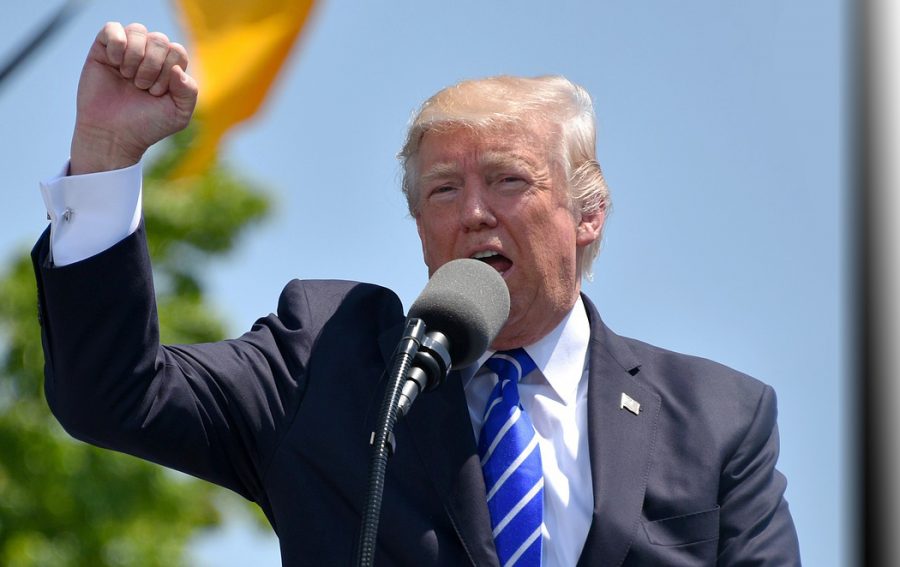Trump chose greed over truth in death of Khashoggi
Journalism is an embodiment of free speech, U.S. government should support truth-seekers
President Donald Trump ought to take a stronger stance against Saudi Arabia to punish its involvement in the death of Saudi journalist Jamal Khashoggi.
October 23, 2018
If government and media do not support each other, democracy can’t work properly. The issue of media and government should be a straightforward one, but more and more this political climate has led to nothing but confusion.
President Donald Trump’s decision to impose minimal sanctions on Saudi Arabian officials so long after the death of Saudi journalist Jamal Khashoggi complicates this relationship even more.
The role of the media in politics is generally as a truth-seeker when bureaucracy doesn’t go far enough to keep the government in check.
Take the case of Carl Bernstein and Bob Woodward, former reporters for The Washington Post who uncovered the Watergate scandal. If it wasn’t for the media, that information would have never been released.
Khashoggi fulfilled the role of truth-seeker to the fullest by speaking out about Saudi Arabia’s crown prince Mohammed bin Salman’s more devious actions, including jailing a prominent Saudi columnist for speaking out against the state.
Trump faced two distinct paths which so many world leaders have to choose: either the path of honesty or greed.
Trump had billions in deals with Saudi Arabia and chose to preserve those relationships and money despite Turkish President Recep Tayyip Erdogan’s claim that the Saudis had killed Khashoggi for speaking out against the state.
The lenient sanctions imposed on the Saudi officials were too little, too late. All evidence points to Khashoggi being murdered by Saudi Arabia for speaking out. Even though Khashoggi wasn’t a U.S. resident, his contributions to The Washington Post represented the essence of freedom of speech.
That is why Trump’s softball sanctions seem so bizarre. It’s confusing because to most journalists, the government is on their side while Trump seems to still be on Saudi Arabia’s side.
Josh Babcock, city editor at the Moscow-Pullman Daily News, understands this sentiment.
“[Whitman County is] a rural and red place, no Democrat in 100 years,” Babcock said. “Even with that, not much happens.”
To the outside eye, a college like WSU in a district this conservative might seem like it would create tension. But because everyone is so close, it only makes sense for the community to support each other. The journalists here represent local politicians’ voters, so it’s in their best interest to support them.
“Dan Foreman, Idaho Republican of Latah and Benewah count[ies] called someone a libtard … they don’t lash out publicly,” Babcock said. “People are more connected, the press represents most of their county.”
Local journalists tell the stories and spread the news of the community — they are the glue that holds a healthy society together. Anyone who wants to succeed needs the help of the press when they want someone to tell their story. But if the press doesn’t get support and free speech isn’t allowed to flourish, society can’t thrive.
The problem of support comes when we look at events and people of national or global prominence. At that stage, there is such a difference in proximity that the president will choose money over freedom of speech because the distance is too great to actually care about someone.
That disconnect is what separates the reactions of a local newspaper to those of the president.
I know if something like that happened in this community no one would stand for it. Everyone is so connected here that even if something less severe happened, we would all support each other, no questions asked.
Freedom of speech is what makes this country so great, so when the president would rather sell weapons than support freedom of speech there is a problem.









